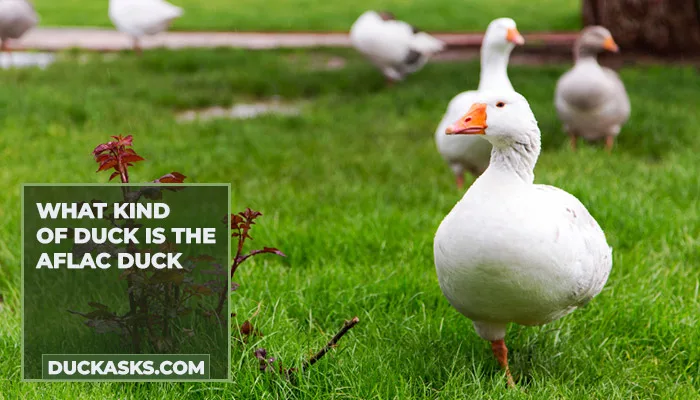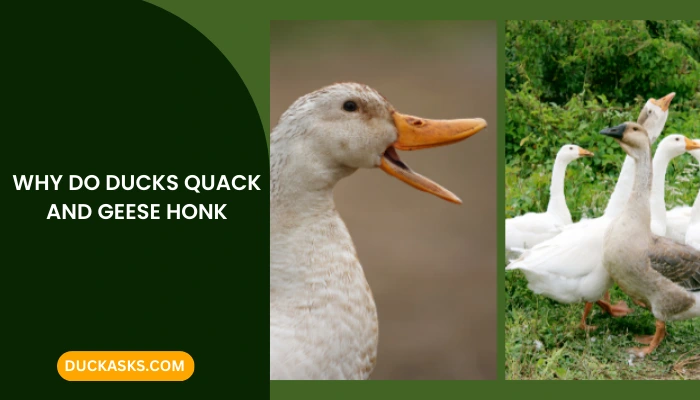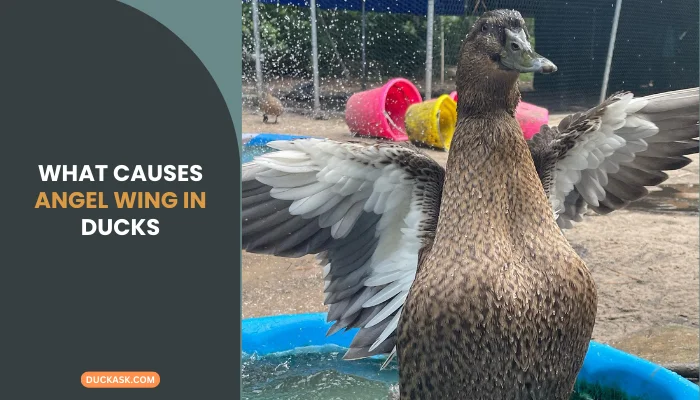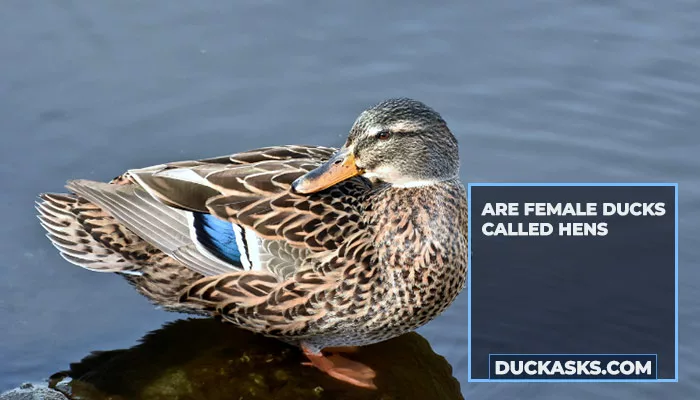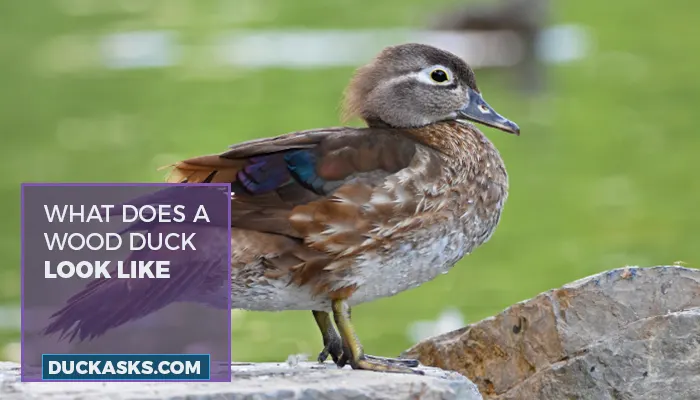What Is Wet Feather in Ducks?
Ducks are waterproof, thanks to their oil-producing glands. But what happens when you deprive them of the water source to swim in? Then it can cause the condition called wet feathers for them.
But what is wet feather in ducks? It’s a condition where the ducks can’t clean their feathers and apply oil over them due to a lack of access to a water source to swim in. The situation can be really painful for them.
That’s why, if you’re a parent to a duck, learn how to prevent it from here. Also, if it already has the condition, we’ll tell you how to treat it in the right manner.
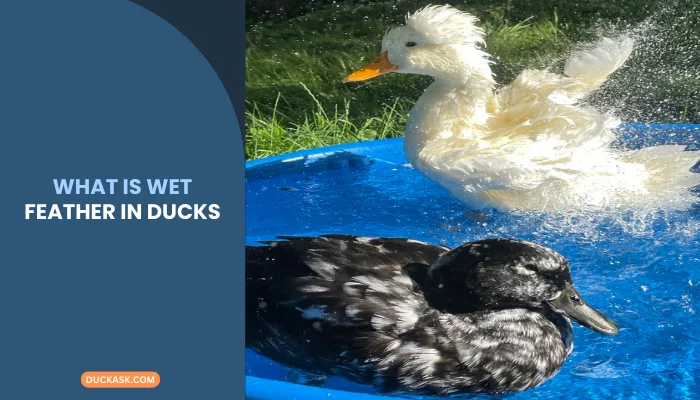
Looking for more articles about ducks blog:
How Does Wet Feather Affect on Ducks?
All ducks have a preen gland at the bottom of their tail that is used to produce oil. It’s a kinda special oil.
So, whenever the ducks get into the water, they preen themselves. They use their beak to spread the oil all over the body. And the oil makes the feathers of the ducks waterproof.
As a result, whenever they come into contact with water, then water slides off their body. So, they can remain dry even after a long swim. But if the ducks lose access to water, they can’t preen and the feathers aren’t cleaned properly.
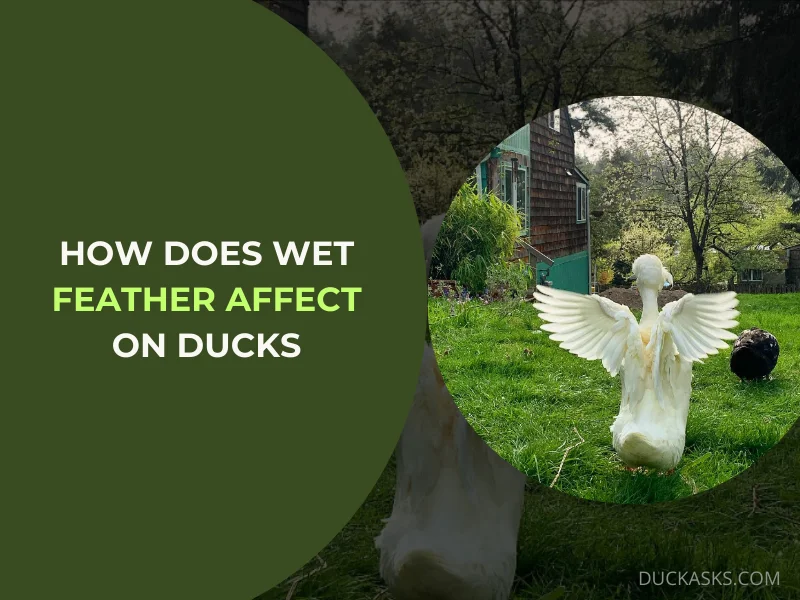
That way, they can’t spread the oil over their body due to the build-up of the dirt and mud. So, when they get in touch with water next time, the water no longer slides off the body, rather, it makes them wet.
And that wet feel makes the ducks very uncomfortable. Also, it’s bad for their health as well. That will also make them apprehensive about touching water, and that makes the feathers more dirty.
And dirty feathers attract all kinds of insects and the ducks spend a lot of effort trying to get rid of them by over-preening.
What Are the Symptoms of Wet Feather in Ducks?
These are the symptoms you should look out for:
How to Care for Wet Feathers in Ducks??
First, you need to get her indoors and give her a thorough bath. You can use lukewarm water and Dawn dish detergent to clean her of all the dirt and the old oil as well.
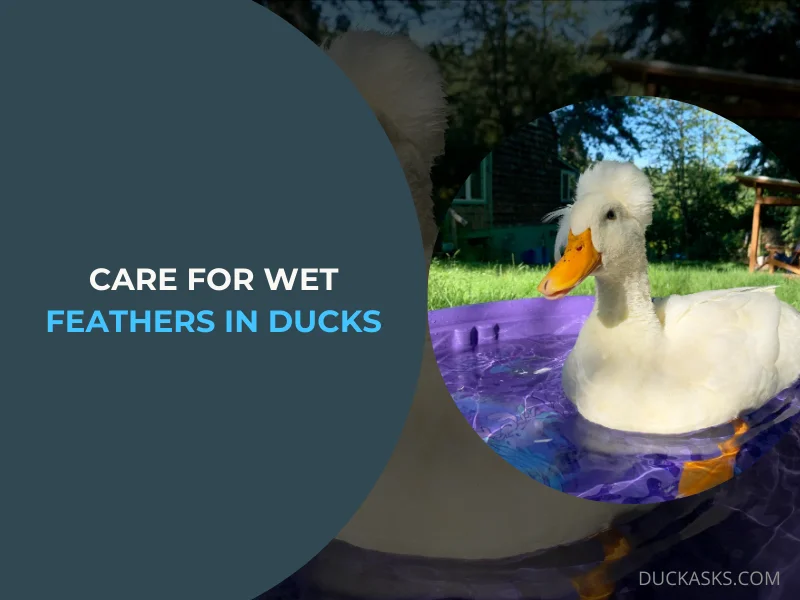
Though you might be tempted to put her in a swimming pool immediately, you have to control that urge.
Don’t let her in a swimming pool for a few days, as it might be too much for her. Instead, give her access to a small tub of water. That way, she can restart the process by splashing water on her feathers and have some fun as well.
After a few days, allow her to swim in the swimming pool or a small pond. And soon she will be waterproofed and the entire wet feather problem will go away.
You can read more about duck feathers:
- What Feathers Do You Clip On A Duck?
- What Do Duck Feathers Look Like?
- What Can We Learn From Duck Feathers?
- What Do Ducks Look Like without Feathers?
How to Prevent Wet Feather in Ducks
Here are some tips to prevent this condition from developing.
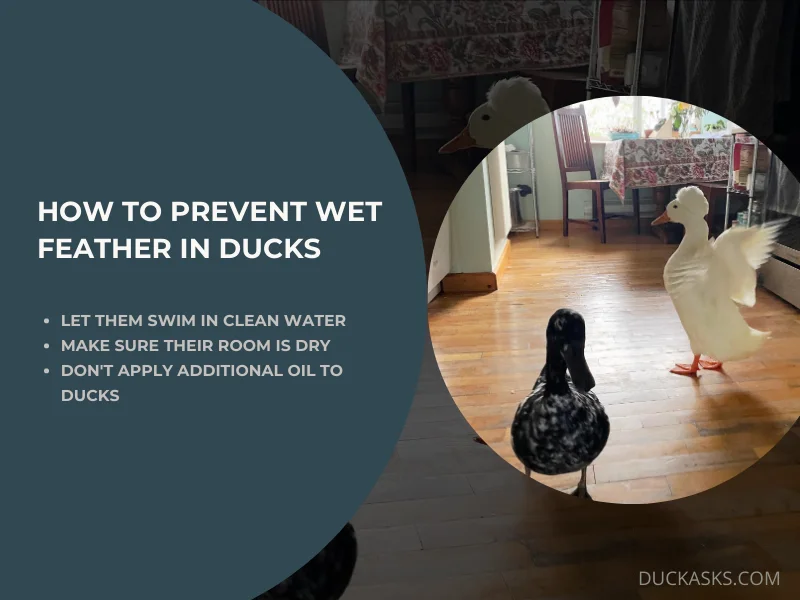
Let Them Swim in Clean Water
Ducks love to swim. So, try to give them a clean source of water to swim in. If the water is murky or dirty, it can be unhealthy for them and they might be unwilling to swim in it.
Make Sure Their Room Is Dry
Though ducks like to spend time in the water, they prefer their living environment to be dry and clean. So, if their house is clean of dirt, they won’t need to preen themselves constantly.
Don’t Apply Additional Oil to Ducks
Ducks release ample amounts of oil to protect their feathers. So, applying any additional oil will only mess things up. That’s why avoid using oil-based products on your ducks.
Conclusion
Thanks to the oil-producing glands, ducks have an amazing way to waterproof themselves and protect them from being wet. But that is conditional upon having regular access to clean water.
Without it, they can’t use their god-gifted abilities to remain dry. That’s why, as a parent of the duck, it’s your duty to make sure that they can swim in clear water and provide a dry environment.
And if somehow they catch the wet weather condition, treat them in a way that we have described to help them recover as soon as possible.
References:
- https://www.waterfowl.org.uk/wet-feather
- https://link.springer.com/chapter/10.1007/978-981-16-6100-6_4
Image Credit:
- Facebook.com/Dusty and Otter Duck

